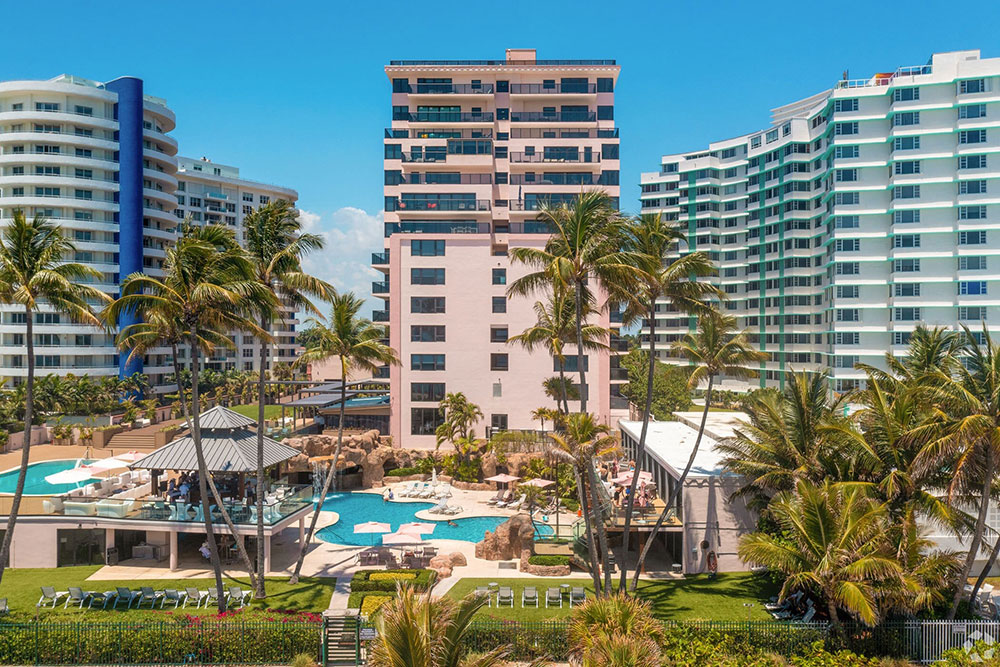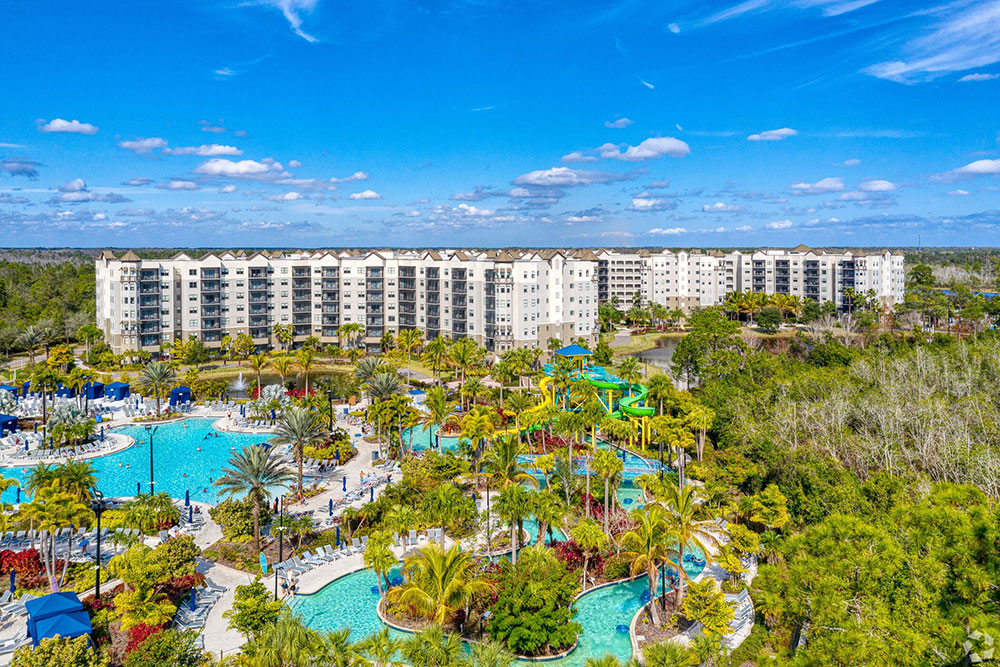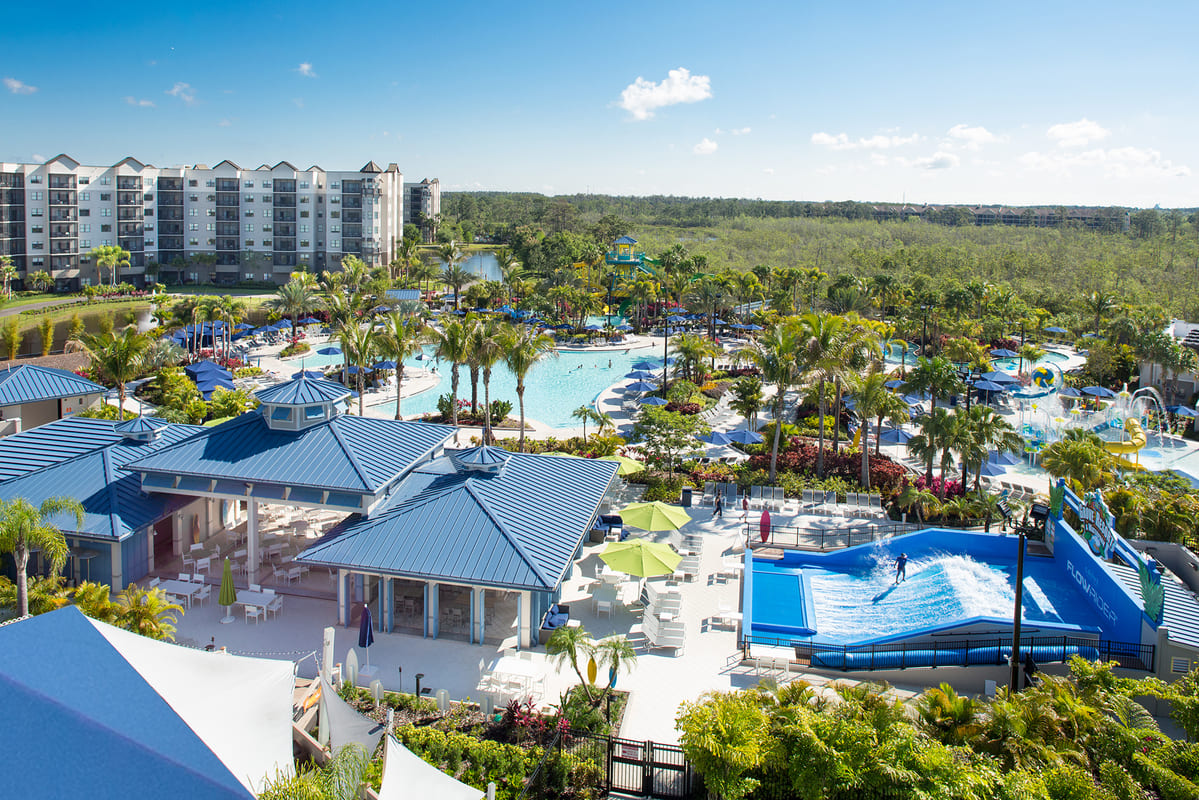Hotel Bookings Slow in Markets Such as Miami, Daytona Beach as International Travel Expands
Summer travel and demand for hotels as a whole in 2023 is trending up year over year, but destination markets such as Miami and Daytona Beach are proving less popular after a successful run of demand growth over the past few years.
Gabriel Perez, regional director of lodging operations for The Indigo Road Hospitality Group, said South Florida in general is experiencing a decline in summer travel, in part due to its success over the past few years. He said Florida’s lax COVID-19 restrictions compared to the rest of the U.S. allowed the market to obtain a steady pace of business just a few months after the pandemic began in March 2020.
There’s a potential for demand growth in the region, he said, as there’s generally a shorter booking window at Indigo Road’s The Alexander Hotel in Miami. On the books right now, though, the market is lagging behind past years.
“As far as pace on the books, this particular hotel is driven by a lot of last-minute weekend reservations. We hope that changes the overall picture for the summer, but as of now, it is fair to say that this year is looking … lower than expected on the books for not only the summer, but the third quarter as well,” he said.

Michele Mainelli, senior vice president of revenue management at Island Hospitality Management, said the company has planned for a decrease in summer room demand at its hotels in Florida.
“I do think we expected it to scale back because it has been so strong the last three years. Now that international travel has ramped up, I think we expected it,” she said. “We didn’t budget as aggressively for the Florida properties as we had in previous years.”
Theresa Hajko, regional director of revenue management at Spire Hospitality, said leisure travel in general is looking comparable to 2022 numbers, but demand is dipping in destination markets, such as at Spire’s The Grove Resort & Water Park in Orlando.
“A year ago at this time, people couldn’t quite so easily travel outside the country. Now what people are doing is they’ve saved up their money and now they’re taking those big trips outside the country,” she said.
Demand is up across Hospitality Ventures Management Group’s portfolio this summer, but varies by market, said Melissa Arana, vice president of revenue strategy at HVMG. Leisure demand is down across beach markets such as Daytona Beach and Fort Lauderdale, but group demand is showing signs of year-over-year growth.
“If we’re talking specifically about whether pace is up or down for the summer, then — pace is still up for our company. Now, what I would say is, obviously, that depends on the hotel and the market, but as a whole, occupancy has been transient, [and there’s] average rate. We’re still quite optimistic from that standpoint,” she said.
Since demand started picking back up after the start of the pandemic, rates have been steadily increasing, in part due to inflation across the U.S. economy. Hoteliers have been hesitant to drop rates.
However, there have been discussions about lowering rates to try to attract more occupancy, Perez said.
“The conversations have been happening for a while. If I start having the conversations for summer in mid-April, we’re in pretty bad shape,” he said.
Perez added he’s hoping that international travel picks up some of the drop in domestic demand so the company can hold onto its rates. Travelers from South America, the Caribbean and Europe used to travel to Florida for a week or more, but that demand just isn’t there anymore, he said.
“Due to visa restrictions, visa expenses, competitive markets and the economic situation in some of these countries, it has been a challenge ever since the pandemic to have that steady piece of business that South Florida will traditionally carry,” he said. “A lot of the countries that compete for the same business are not requiring a visa.”
Markets with Strong Summer Demand
There’s still strong demand for hotel rooms this summer across the U.S. Nashville, Las Vegas and Phoenix are a few cities that have a favorable forecast year over year, said Jacob Bruno, senior forecasting analyst for CoStar’s hospitality analytics firm STR.
Bruno said hotel demand from trade shows and conventions is still ramping up, which could be picking up the slack for destination markets.
“It’s kind of moving away from those destination markets toward the upper-upscale, luxury hotels in the [central business districts] on that group side and for those upper earners,” he said.
Atlanta is projected to be one of HVMG’s top markets this summer, with group demand leading the way, Arana said.
Hajko said the hotels she revenue-manages in Boston and Annapolis, Maryland, are among those booking at the same pace as summer 2022.
Mainelli said hotel markets in the Northeast — specifically Portland, Maine — are set to perform well.
“In the Northeast, we have Portland, which is just on fire. There’s no other explanation. It’s just on fire,” she said. “It’s crazy how much demand there is in that market.”
Effects of a Potential Recession on Summer Travel

Most experts project a recession in the U.S. economy is likely to occur in the second half of 2023 as interest rates continue to rise along with inflation. Hotel revenue managers are optimistic that it won’t have a large impact on demand.
“I lean more on the optimistic side of that one, to be honest,” Arana said. “I think that is again because most of our hotels just haven’t fully recovered. If there is a recession, that will probably slow down our recovery, but I do think that we are going to continue to see recovery throughout the rest of the year.”
Hajko said she doesn’t expect it to have a huge impact on demand because consumers still value traveling.
“Travel’s one way where people still treat themselves, especially after a couple of rough years,” she said. “I think that the traveler is most definitely going to be looking for value — that’s not necessarily a discount, but value. I don’t anticipate that it’s going to have a huge effect.”
Bruno said those making $75,000 or more are likely to be unaffected by a potential recession, but there may be some tightening in the $50,000 and under range.
“We’re noticing, especially [with people earning] under $50,000 a year, that the sentiment toward taking leisure travel over the next six to nine months has dropped quite a bit,” he said.


 Theresa Hajko
Theresa Hajko 
 SPIRE Hospitality
SPIRE Hospitality 



 Shozib Khan
Shozib Khan 